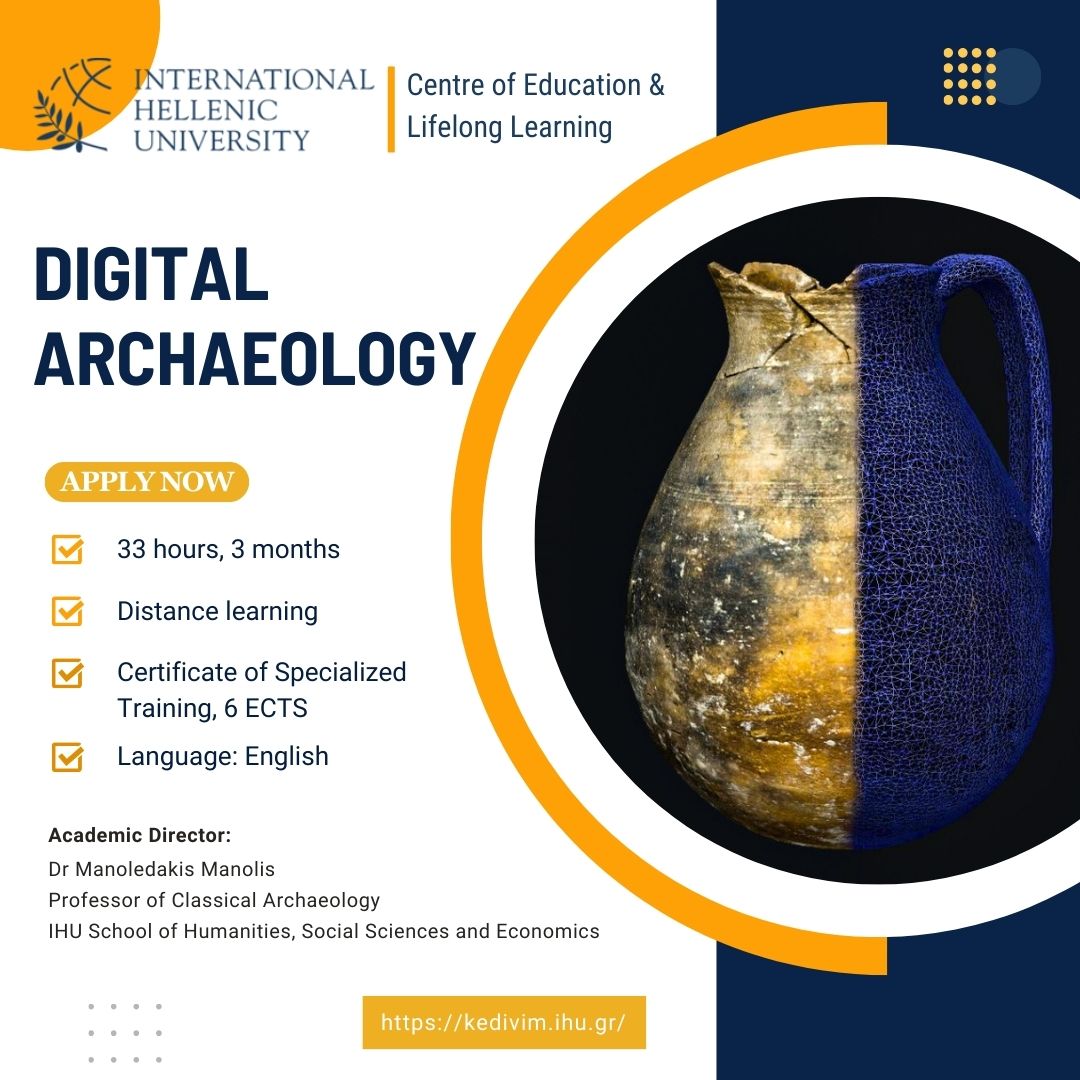
The programme is addressed to people who are interested in the use of new technologies in archaeology. Topics that will be examined include curation of Digital Archaeological Data, the principles and practical applications of Geographical Information Systems (GIS) in archaeological research, as well as 3D recording techniques that are mostly used for archaeological purposes (photogrammetry, laser scanning, structured-light scanning).
Upon completing the programme, the students will have:
1) understood the significance of new technologies in archaeology
2) understood the diverse options available for data curation
3) realized that a thorough planning prior commencing any project is necessary in order to guarantee its data transparency and facilitate the future impact it can have resulting by its dissemination
4) developed spatial thinking skills and spatial analytical techniques
5) answered critical questions on how and why we use GIS
6) learned practical applications of GIS in archaeological fieldwork, such as integrating excavation and survey data, database construction, remote sensing and editing vector data
7) understood the basics of coordinate systems and how to georeference aerial photographs and other critical datasets for archaeological interpretation
8) acquired expertise in creating professional thematic maps of archaeological material
9) become able to use and manipulate digital surface models for visualization and analysis.
10) become able to perform important spatial analyses in GIS, such as viewshed and cost surface
11) acquired a complete view of the main 3d documentation techniques for surface scanning
12) familiarized themselves with the processes via visual material
13) become able to think more critically on the application of those 3D techniques by being presented with several and diverse showcases and by reviewing their challenges.
14) been given the opportunity to practice some of the above in the field, in the archaeological excavation of the International Hellenic University at Neo Rysio, Thessaloniki in June (optionally).
- Teacher: Jamieson Donati
- Teacher: Vasiliki Lagari
- Teacher: Manolis Manoledakis
- Teacher: Efthimia Mavridou
- Teacher: Jamieson Donati
- Teacher: Vasiliki Lagari
- Teacher: Manolis Manoledakis
- Teacher: Efthimia Mavridou